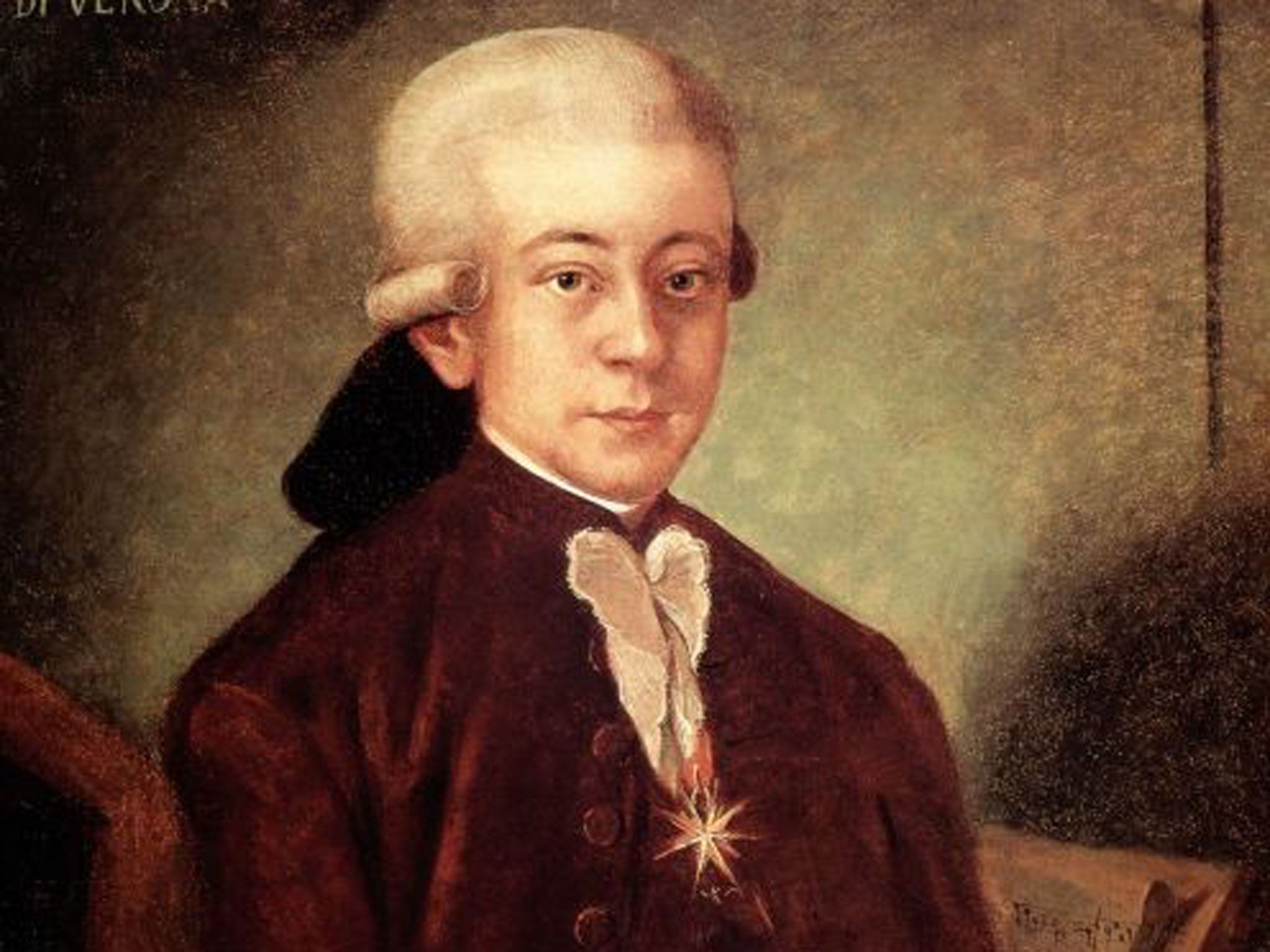Long-lost Mozart score discovered tucked away in Czech museum
The discovery shows a professional relationship between two rival musical talents

Your support helps us to tell the story
From reproductive rights to climate change to Big Tech, The Independent is on the ground when the story is developing. Whether it's investigating the financials of Elon Musk's pro-Trump PAC or producing our latest documentary, 'The A Word', which shines a light on the American women fighting for reproductive rights, we know how important it is to parse out the facts from the messaging.
At such a critical moment in US history, we need reporters on the ground. Your donation allows us to keep sending journalists to speak to both sides of the story.
The Independent is trusted by Americans across the entire political spectrum. And unlike many other quality news outlets, we choose not to lock Americans out of our reporting and analysis with paywalls. We believe quality journalism should be available to everyone, paid for by those who can afford it.
Your support makes all the difference.A long-lost musical composition by Wolfgang Amadeus Mozart has been discovered in a museum.
The collaborative effort, a libretto, between Antonio Salieri and Mozart was found tucked away in the reserve collection of the Czech national museum, according to The Local.
"It's a joint composition by Mozart and Salieri, a libretto by Lorenzo Da Ponte put to music," Sarka Dockalova, the museum's spokeswoman, told AFP.
Salieri, a key figure in the development of late 18th-century opera, was described by Mozart in various letters as a "favourite" Italian composer of the Emperor of the time, Joseph II, and his rival in musical terms.
"It's a really valuable work [...] long thought to have been lost," said Ms Dockalova.
According to letters sent to his father, Mozart said "the only one who counts in [the Emperor's] eyes is Salieri."

Rumours circulated after Mozart's early death in 1791 that Salieri had poisoned the Austrian composer, which were further compounded by a 1984 film of his life, "Amadeus".
The discovery of a co-authored composition would appear to support the long-since dismissed theory that Salieri might have played a role in Mozart's death.
Alexander Pushkin's 19th century poetic drama "Mozart and Salieri" had also sought to dramatise the mysterious circumstances surrounding Mozart's death at the age of 35.
Join our commenting forum
Join thought-provoking conversations, follow other Independent readers and see their replies
Comments